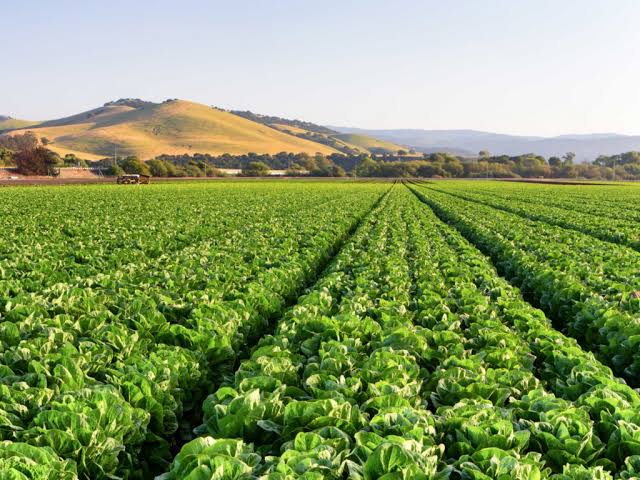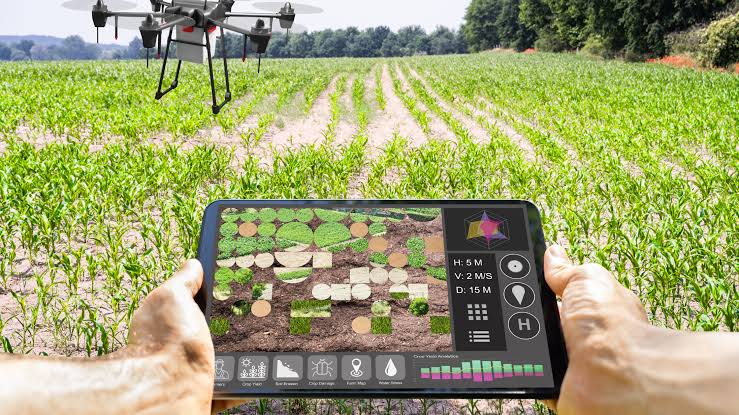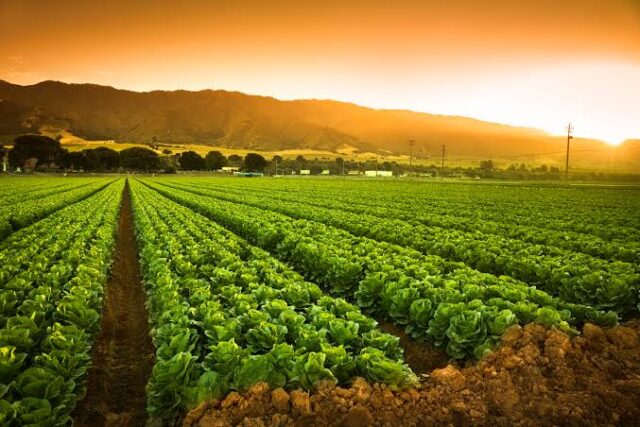
Agriculture is a system that plays an important role in the economy of the United States and the world at large.
Today, it not only provides food and other essential products for the domestic markets, but it also contributes significantly to the country’s economy.
According to a stat in USDA, the agricultural sector accounts for around 1% of the total GDP and employs around 2 million people.
But, despite the numerous importance of agriculture, the industry has been facing a number of challenges in recent years, such as climate change, labor shortages, and trade issues.
Despite its numerous challenges, the industry has also been seeing new opportunities, such as the growing demand for sustainable and organic products.
In this blog post, we will explore the current state of the agricultural industry in the US and the career prospects for agricultural graduates.
We will also discuss the most common career paths in agriculture, such as farming, agribusiness, and food science, as well as specific job titles and their responsibilities within the industry.
We will look at potential growth areas within the industry, such as precision agriculture and organic farming.
Additionally, we will also discuss the education and training requirements for different agricultural careers, as well as the challenges and opportunities facing the industry.
Career Opportunities in Agriculture
The agricultural industry offers a wide range of career opportunities for graduates, from the traditional farming methods which we all are familiar with to more specialized roles in agribusiness and food science.
Some common career paths in agriculture include:
Farming:


Farming is one of the most traditional career paths in agriculture and involves growing crops and raising livestock.
Farmers are responsible for managing the entire production process, from the planning and planting to the harvesting and marketing processes.
Agribusiness:


Agribusiness involves managing the business side of agriculture, such as the marketing, finance, and logistics.
Professionals in agribusiness are responsible for managing the supply chain of agricultural products, from the farm to the consumer.
Food Science:


This involves using scientific principles to develop new food products and improve existing ones.
Food scientists work on a wide range of tasks, such as developing new food products, improving the nutritional value of foods, and ensuring food safety.
Some specific job titles within the industry include:
Crop and Livestock Managers:


Crop and livestock managers are trained professionals who are responsible for managing the production of crops and livestock on a farm.
They plan and coordinate the planting, harvesting, and marketing of crops, and supervise the care of livestock.
Agricultural Engineers:


Agricultural engineers are trained professionals responsible for designing and developing new agricultural equipment and systems, such as irrigation systems and precision agriculture technologies.
They also work on improving existing equipment and systems to increase efficiency and productivity.
Food Scientists:


Food scientists are trained professionals that use scientific principles to develop new food products and improve existing ones.
They conduct research on the physical, chemical, and biological properties of food, and use this information to develop new products and improve existing ones.
Potential Growth Areas in the Industry
In recent years, there have been a number of new opportunities within the agricultural industry.
These opportunities include:
Precision Agriculture:


Precision agriculture is a rapidly growing field in agriculture that uses technology, such as GPS, sensors, and drones, to improve the efficiency and productivity of farming.
It allows farmers to collect and analyze data on factors such as soil moisture, crop growth, and weather patterns to optimize their operations.
Organic Farming:


Organic farming is another rapidly growing field that involves growing crops and raising livestock without the use of synthetic chemicals or genetically modified organisms (GMOs).
The demand for organic products has been increasing in recent years, and this is expected to continue in the future.
Education and Training Requirements
The education and training requirements for different agricultural careers vary depending on the specific job you intend going for.
For example, farmers usually have at least a high school diploma, while agribusiness professionals typically have a college degree in agriculture or a related field.
There are many educational programs and institutions that offer degrees and certifications in agriculture.
Some popular educational program options include:
Agricultural and Biological Engineering:
The agricultural and biological engineering program focuses on the design and development of new agricultural equipment and systems, as well as the improvement of existing ones.
Agribusiness:
The agribusiness program focuses on the business side of agriculture, such as marketing, finance, and logistics.
Food Science:
This food science program focuses on the development and improvement of food products, as well as the safety and quality of food.
In addition to formal education, there are also many opportunities for hands-on training and experience in the agricultural industry. This can include internships, apprenticeships, and on-the-job training.
For example, a student studying agribusiness could gain experience by interning at a farm or agricultural supply company.
Challenges and Opportunities in the Agricultural Industry
Despite the many opportunities in the agricultural industry, there are also a number of challenges that need to be addressed.
Some of the biggest challenges facing the industry include:
Climate change:
The effects of climate change, such as extreme weather events and changes in precipitation patterns, can have a significant impact on agricultural production.
Labor shortages:
The agricultural industry relies heavily on labor, but there is a shortage of workers in many areas.
This can make it difficult for farmers to find the workers they need to plant and harvest their crops.
Trade issues:
The agricultural industry is heavily dependent on exports, but trade disputes and tariffs can have a significant impact on the industry.
Despite these challenges, there are also many opportunities within the industry.
Some of the biggest opportunities include:
Sustainability:
The demand for sustainable and organic products is increasing, and this presents an opportunity for farmers and agribusinesses to tap into this market.
Increase in productivity
The use of technology, such as precision agriculture and data analysis, can help farmers increase efficiency and productivity.
Consumer demand:
The demand for high-quality, locally-sourced food is increasing, and this presents an opportunity for farmers and agribusinesses to tap into this market.
In conclusion,
The agricultural industry plays a vital role in the United States, providing food and other essential products for the domestic market and contributing to the country’s economy.
Despite the challenges facing the industry, there are also many opportunities for growth, such as precision agriculture, organic farming, and sustainable products.
Agriculture graduates have a wide range of career options available to them, from traditional farming to more specialized roles in agribusiness and food science.
With the right education and training, and a passion for the industry, agricultural graduates can make a real difference in the future of agriculture in the US.


My name is Faustina Oriji, I have a passion for writing and I enjoy writing on a variety of topics. I take pleasure in learning about new and exciting areas of writing.










